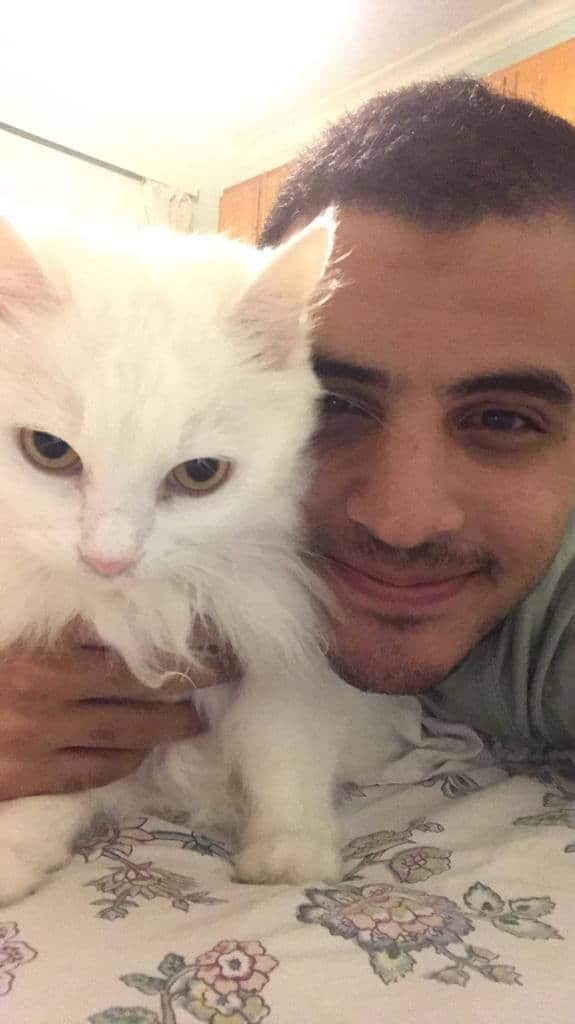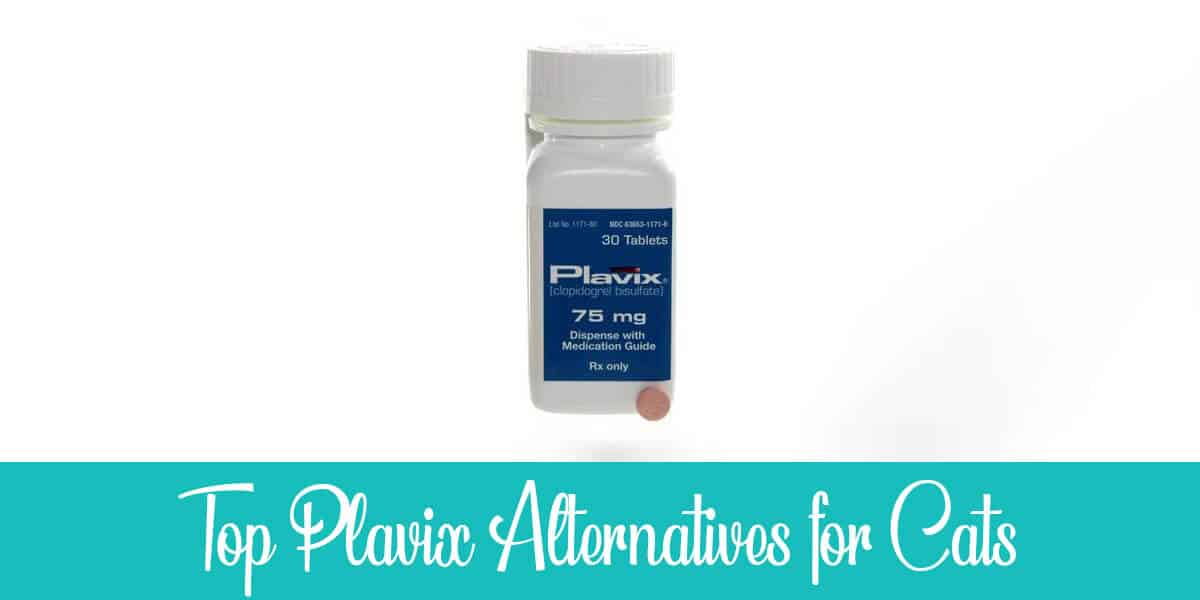While different species might show many early signs of heart diseases like coughing or intolerance to high activity, it’s commonly called the “silent killer” of cats. Since they’re mostly asymptomatic to it until it’s in an advanced stage.
Even though there’s no actual cure for heart diseases in cats, there are still a few treatments that can be approached. However, common drugs don’t always satisfy the cat’s therapeutic needs encountered during the treatment.
Veterinary medicine is known to have lots of “off label” or “extra-label” prescriptions. With lots of vets prescribing Plavix, we’ll be going over what it does, as well as alternatives to Plavix for cats.
Table of Contents
Alternatives to Plavix (Clopidogrel) for Cats
- Antiplatelet medications like Aspirin
- Diuretics like Furosemide
- Topical creams like Nitroglycerin
- ACE inhibitors like Enalapril
- Beta-channel blockers like Atenolol
- Calcium-channel blockers like Diltiazem
What is Plavix?
Clopidogrel, sold under the brand name, Plavix, is an antithrombotic medication used to prevent clot formation, strokes, and heart attacks in humans with heart diseases or at risk of such events.
It’s also used for similar reasons, as one of the most potent platelet aggregation inhibitors, to treat cats from heart diseases as well as dogs and horses sometimes.
Heart Disease for Cats (Hypertrophic Cardiomyopathy)
Hypertrophic cardiomyopathy (HCM) is the most common heart disease in cats. As The American Veterinary Medical Association (AVMA) states, it affects 1 in every 10 cats worldwide.
HCM is a disease where the heart muscles and walls keep thickening and weakening until it becomes too tight for the blood to stream freely. The heart then becomes less effective at blood circulation, most commonly to the lower limbs, making it harder for the cat to move as it ages.
Alternatives to Plavix
There are many ways to treat HCM in cats depending on the symptoms observed as well as the cat’s overall health.
Here are a few main medications used to treat HCM other than Plavix:
1- Aspirin
While both drugs are very tolerable to cats and produce somewhat similar benefits. A recent study was done on 75 cats that had survived cardiogenic arterial thromboembolism (CATE) events. The study tested whether clopidogrel will reduce the likelihood of recurrence of such events.
The study found both Aspirin and Plavix to be beneficial to cats, with an incline towards Plavix being more efficient at reducing the recurrence of CATE. Another study suggested its later-on higher survival rate, where Plavix was proven to extend survival rates of cats for 8 months more than Aspirin.
2- Diuretics
One of the most common treatments for high blood pressure in general, the “water pills” or diuretics, are pills that help the body eliminate excess salt and water.
Furosemide is commonly used on cats with HCM accompanied with severe respiratory distress, and sometimes in cases accompanied by congestive heart failure (CHF), where it might need to be maintained for the rest of the cat’s life.
The medicine has a very rapid onset. Usually, within 5 minutes when injected intravenously or within 30 minutes if injected intramuscularly. It’s a perfect medicine to treat pulmonary edema due to CHF.
The first dose is usually 0.000032-0.000064 oz/lb (2-4 mg/kg) and is repeated within 1-2 hours. However, to avoid extreme dehydration, you should probably lower the doses once the respiratory rate decreases. In a few cases, it can be gradually discontinued if the cat’s conditions are stabilized.
3- Topical Creams
Nitroglycerin is sometimes prescribed alongside Furosemide to treat edema formation due to HCM, where it’s safe to use and has its benefits; there are no studies to prove its efficiency or accuracy in treating such cases for cats. In either case, cats develop tolerance rapidly against it. It also might show even lesser effects during prolonged use.
Related Posts:
– Alternatives to Clavamox for Cats
– Metacam Alternatives for Cats
– Top Metronidazole Alternatives for Cats
– Best Prednisone Alternatives
4- ACE Inhibitors
The use of ACE inhibitors like Enalapril has only become common in recent years. They were usually avoided in fear they might worsen SAM accompanied by HCM. However, one study suggests that ACE inhibitors improve the quality of a cat’s life, as well as its survival rate.
A different study suggested that the use of Furosemide alone is much more beneficial in treating HCM. However, the study included cats with unclassified cardiomyopathy and both cats with and without SAM.
5- Beta-Channel Blockers
Beta-channel blockers are mainly used to reduce SAM in cats, slow the heart rate, and regulate the oxygen used by the heart to pump blood into the body.
Medications like Atenolol can be prescribed for such cases. However, there’s a prominent concern when it comes to cats with diastolic dysfunction, where a study claims that the use of Atenolol will reduce the survival rate of cats. So, beta-channel blockers should be reserved for cases with severe SAM or with cardiac arrhythmias.
Cats sleep almost 85% of the time. Their bodies are already capable of reducing sympathetic activity, sometimes even better than beta-blockers, which might make SAM appear more severe in a clinic than at home.
Related: Alternatives to Sub Q Fluids for Cats
6- Calcium-Channel Blockers
Similar to beta-channel blockers in action, calcium-channel blockers also tend to reduce the strength of heart contractions to provide more rest.
Even though controversial to use and might not have the most adept outcomes, calcium-channel blockers like Diltiazem will have no harm on cats when dosed around 75 mg every 8 hours.
It even shows less edema formation and a gradual decrease in the heart wall thickness. However, in said study, only a few cats had shown a reduction in wall thickness, making it difficult to tell if it’s the drug or just time.
In any way, lots of cats can be asymptomatic to heart diseases, and as recent studies claim, calcium-channel blockers have no effect on increasing feline lifetime. It’s why most vets have abandoned calcium-channel blockers since beta-channel blockers do the job better anyway.
Always refer back to your vet before administering any medications to your cat.
7- Warfarin
Warfarin, also known as Coumadin, is an anticoagulant medication that can be prescribed to cats with certain medical conditions. It works by inhibiting the production of vitamin K-dependent clotting factors, which can help prevent the formation of blood clots. Warfarin is typically given orally and the dosage will depend on the cat’s weight and the severity of their condition.
Cats with conditions such as arterial thromboembolism (ATE) or certain types of heart disease may be prescribed warfarin. However, warfarin can have serious side effects, including bleeding disorders and interactions with certain foods and medications. As a result, cats taking warfarin require close monitoring to ensure that their blood is not becoming too thin.
It is important to note that warfarin should only be given to a cat under the guidance of a veterinarian with a proper diagnosis and prescription.
Conclusion
As cats get older and weaker, the chance of their heart getting weak increases gradually. While there are many different alternatives to Plavix for cats, still, every one of them has its own pros and cons.
Some vets might avoid medications in some cases and advise a better nutritional diet with nutrients like Taurine, L-Carnitine, or Omega-3 and lower activity levels to keep the heart at rest more often.
Finally, always remember to follow your vet’s instructions and never hesitate to discuss your pet’s treatment or ask for their assistance.

I’ve been living with cats since 2008 and I can confidently say I have more feline friends than humans lol. I currently live with 5 cats in different life stages; two of them are less than one year old, one is 2-ish years old and the oldest two are 9-ish years old. I’ve developed a strong bond with cats over the years and I’m eager to share my experience through this blog. You can learn more about my cats here.

